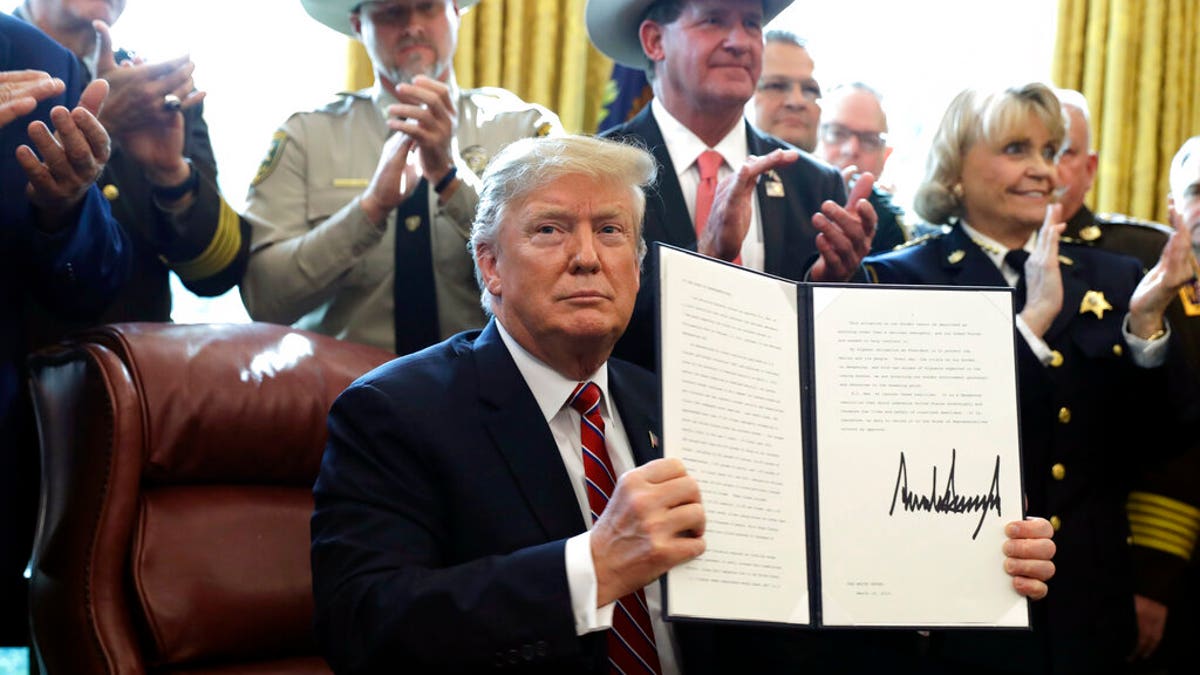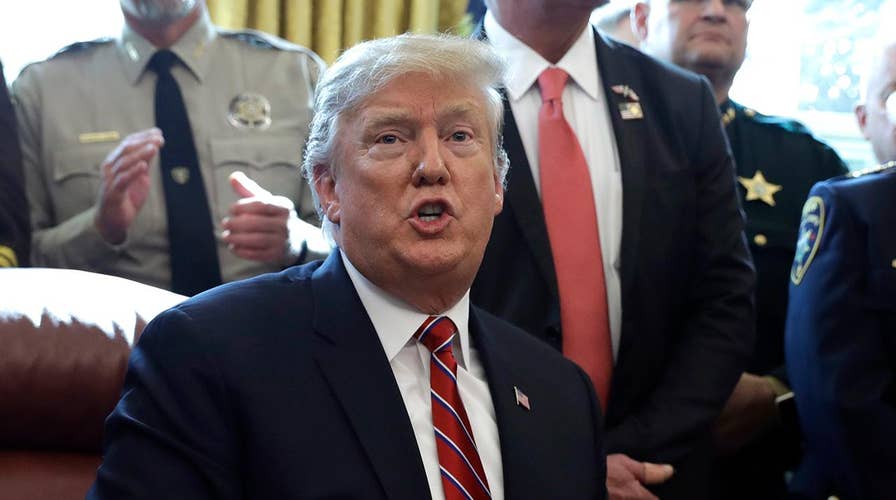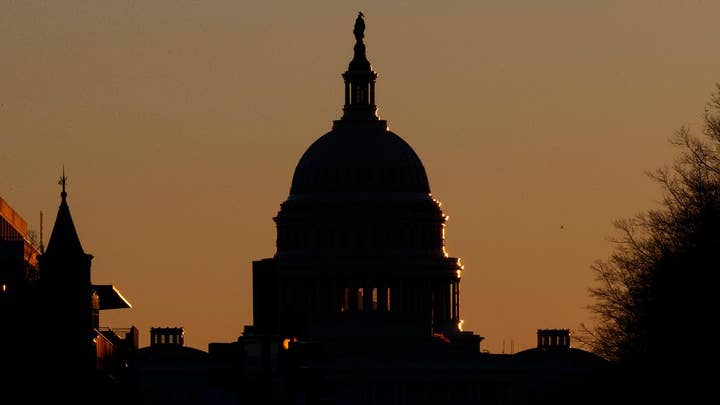President Trump on Friday used the first veto of his administration to reject a bipartisan resolution that sought to block his declaration of a national emergency at the border, a move almost certain to kill the measure.
"Today I am vetoing this resolution," Trump, surrounded by law enforcement officials and families of those killed by illegal immigrants, said in the Oval Office. "Congress has the freedom to pass this resolution and I have the duty to veto it."
SENATE VOTES TO BLOCK TRUMP'S BORDER EMERGENCY DECLARATION, IN BIPARTISAN REBUKE TEEING UP VETO
Trump’s veto came a day after 12 Senate Republicans joined Democrats in voting for the resolution, despite last-minute efforts between the White House and GOP lawmakers to keep the Republican Party united. The measure ultimately passed 59-41, and Trump immediately vowed to veto.

President Donald Trump speaks about border security in the Oval Office of the White House, Friday, March 15, 2019, in Washington. Trump issued the first veto of his presidency, overruling Congress to protect his emergency declaration for border wall funding. (AP Photo/Evan Vucci)
While the original passage marked a stinging rebuke from members of Trump's own party, his veto is likely the last word as lawmakers are unlikely to muster the two-thirds majority required to override.
On Friday, Trump called the resolution "dangerous" and said it would have revoked border operations put into place by the declaration. He also thanked Republicans who voted against the resolution.
"I have to in particular thank Republicans, strong Republican senators that were on our side and on the side of border security," he said. He later added that the vote for the resolution was "a vote against reality."
Senate Minority Leader Chuck Schumer, D-N.Y., said that the veto was a sign that Trump "had chosen to trample all over the Constitution."
“It is no surprise that the president holds the rule of law and our Constitution in minimal regard. There is no emergency; Congress has refused to fund his wall multiple times; Mexico won’t pay for it; and a bipartisan majority in both chambers just voted to terminate his fake emergency," Schumer said in a statement.
House Speaker Nancy Pelosi, D-Calif., said that the House will vote to override the veto on March 26.
“House Republicans will have to choose between their partisan hypocrisy and their sacred oath to support and defend the Constitution,” she said in a statement.
Trump originally declared a national emergency on the border last month after Congress granted only a fraction of the $5.7 billion he requested for a wall on the border. Declaring a national emergency allows Trump to steer an extra $3.6 billion to the wall.
Senate Democrats, who have consistently opposed many of Trump’s hardline immigration policies, were joined by Republicans who expressed support for Trump’s calls to build a wall -- but cited concern about the expansion of presidential power. The resolution had previously passed the Democrat-controlled House.
SENATE VOTES TO END US SUPPORT FOR SAUDI FORCES IN YEMEN
“This is a constitutional question, it’s a question of the balance of power that is core to our constitution,” Sen. Mitt Romney, R-Utah, told reporters. “This is not about the president or border security, in fact I support border security, I support a barrier.”
The other Republicans who voted to oppose the declaration were Sens. Mike Lee, R-Utah; Rob Portman, R-Ohio; Susan Collins, R-Maine; Lisa Murkowski, R-Alaska; Marco Rubio, R-Fla.; Rand Paul, R-Ky.; Lamar Alexander, R-Tenn.; Roger Wicker, R-Miss.; Roy Blunt, R-Mo.; Jerry Moran, R-Kan.; and Pat Toomey, R-Pa.
CLICK HERE TO GET THE FOX NEWS APP
Sen. Thom Tillis, R-N.C., had said he would oppose the declaration but reversed course on the Senate floor, saying that he was "sympathetic" to Trump's push to deal with the crisis at the border.
Lee, meanwhile, had introduced a bill that would end future emergency declarations after 30 days, in an effort to allow Republicans to vote against the resolution. But after Trump said he opposed that legislation, Lee eventually backed the measure to rebuff Trump.
Fox News' Kelly Phares and Chad Pergram contributed to this report.














































